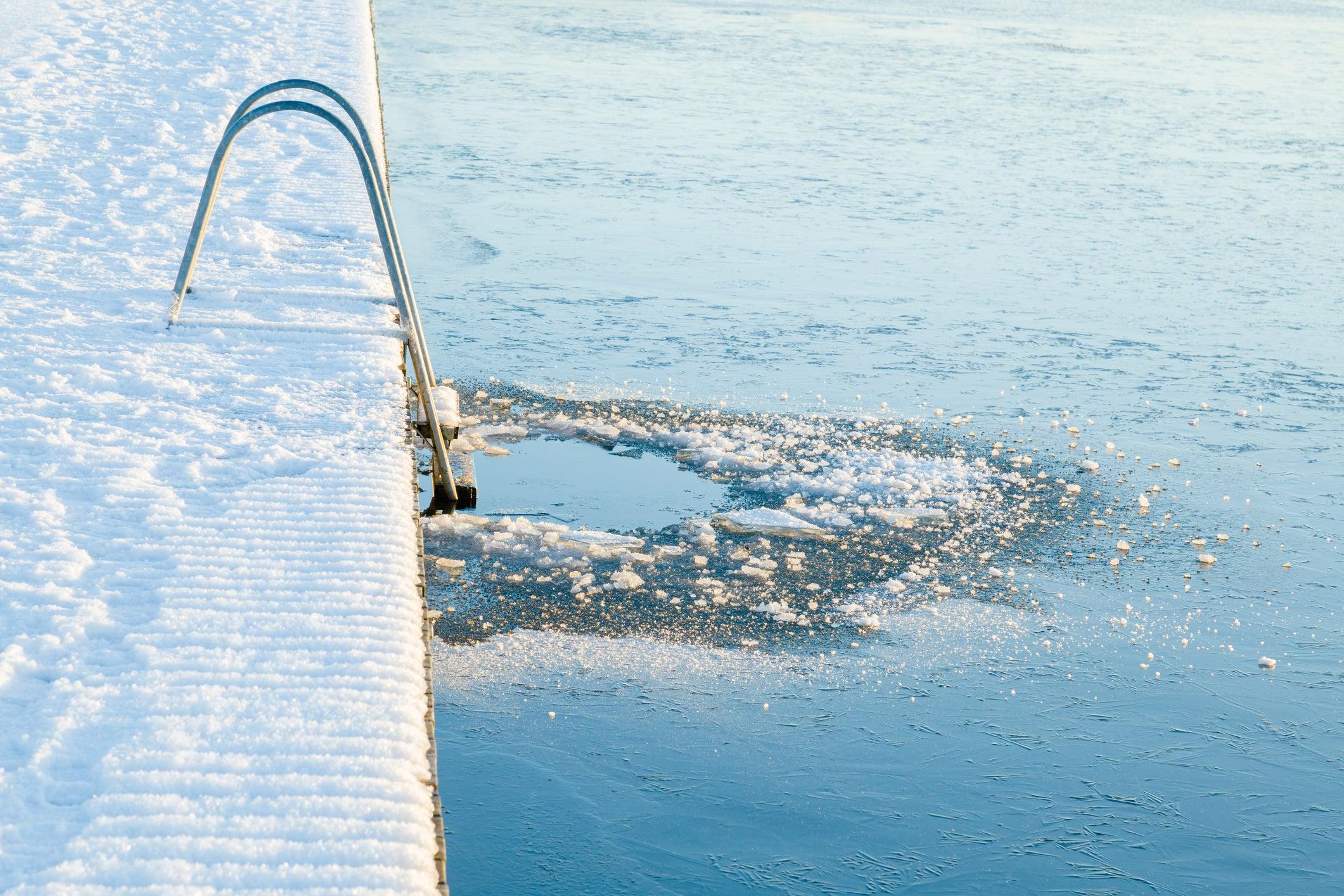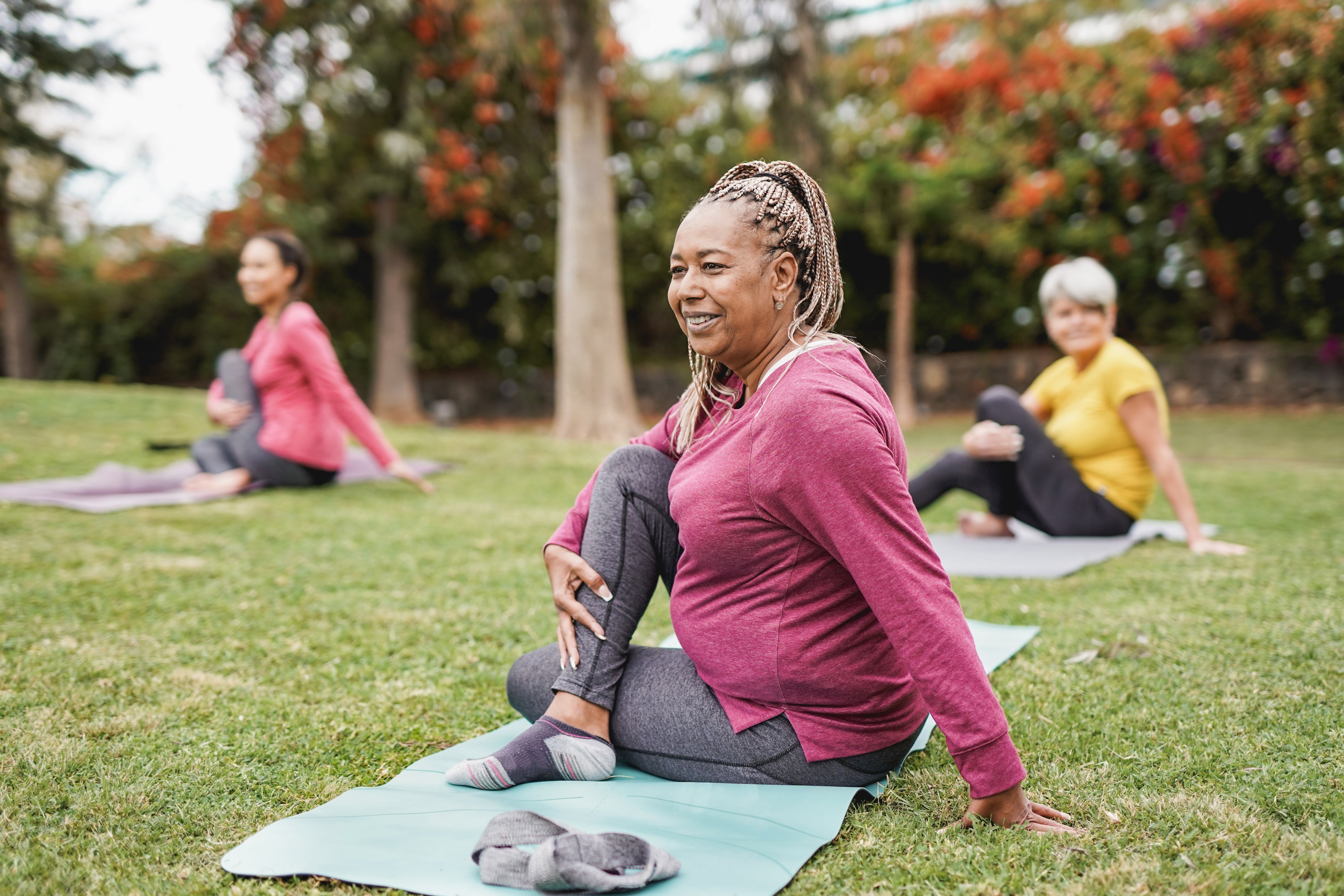Menopause symptoms can be improved by cold water swimming – here’s what else you can do to help
Regular swimmers said it helped boost their mood and mental wellbeing, while some even said night sweats reduced
Menopausal women can help alleviate their symptoms by going cold water swimming, scientists have found.
The sport which has surged in popularity recently has a large wealth of health benefits and the latest researchshows how the activity can help women battling the menopause.
A team at University College London (UCL) surveyed 1,114 women who regularly swam in cold water, including 785 who were menopausal.

Some 46.9% said cold water swimming helped their anxiety, 34.5% said their mood swings had improved, while a fifth noted reduced night sweats. As for hot flushes, 31.1% said this symptom had improved. Those who swam more regularly or for longer intervals reported greater benefits, the research found.
Commenting on the findings, published in Post Reproductive Health, senior author Professor Joyce Harper, of the UCL EGA Institute for Women’s Health, said: “Cold water has previously been found to improve mood and reduce stress in outdoor swimmers, and ice baths have long been used to aid athletes’ muscle repair and recovery.

“Our study supports these claims, meanwhile the anecdotal evidence also highlights how the activity can be used by women to alleviate physical symptoms, such as hot flushes, aches and pains.
“More research still needs to be done into the frequency, duration, temperature and exposure needed to elicit a reduction in symptoms. However, we hope our findings may provide an alternative solution for women struggling with the menopause and encourage more women to take part in sports.”
Physical symptoms of menopause and perimenopause
According to the NHS
- hot flushes, when you have sudden feelings of hot or cold in your face, neck and chest which can make you dizzy
- difficulty sleeping, which may be a result of night sweats and make you feel tired and irritable during the day
- palpitations, when your heartbeats suddenly become more noticeable
- headaches and migraines that are worse than usual
- muscle aches and joint pains
- changed body shape and weight gain
- skin changes including dry and itchy skin
- reduced sex drive
- vaginal dryness and pain, itching or discomfort during sex
- recurrent urinary tract infections (UTIs)
Here are some other activities with research-backed benefits for easing menopause symptoms…
Running (or any cardio!)
Entering midlife and beyond doesn’t mean you have to say goodbye to high-impact exercise. In fact, the Royal College of Obstetricians and Gynaecologists cites aerobic exercise – such as jogging and running – as an evidence-based lifestyle measure to help manage menopause.
It’s never too late to start, either. A 2012 study which looked at how aerobic training affects symptoms in recently postmenopausal women who’d previously had sedentary lifestyles, found after six months, symptoms such as night sweats, mood swings and irritability had improved.
High-impact activity has also been linked with supporting bone density in post-menopausal women – which is especially important as the drop in oestrogen that happens with menopause can cause weakened bones and osteoporosis.

Yoga
With reduced anxiety and inflammation among its many science-backed benefits, it’s perhaps no wonder research also suggests yoga could help with menopause. One such study, published in 2022 in Nursing & Health Sciences, found yoga was particularly associated with improved sleep among peri- and post-menopausal women.

Strength training
Resistance or strength-training exercise is especially important for women in their 40s, 50s and beyond – firstly because being strong helps manage the effects of oestrogen loss and that previously mentioned higher risk of osteoporosis. It also supports metabolic function, which is good news for health overall.
One study published last summer found menopausal women who took up resistance training (this could be lifting weights or dumbbells, using the strength-building gym machines or even just your own bodyweight with a mat-based workout), had better muscle mass than those who only did cardio.
While not a menopause symptom as such, women’s risk of cardiovascular disease can increase post-menopause – and regular exercise has been found to help with this too. One data review published last year found all forms of regular exercise – including aerobic and resistance training – were associated with better cardiorespiratory fitness after menopause.
Join our commenting forum
Join thought-provoking conversations, follow other Independent readers and see their replies
Comments
Bookmark popover
Removed from bookmarks